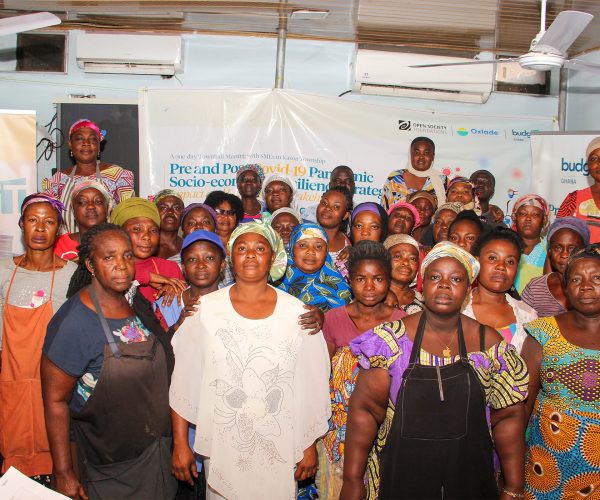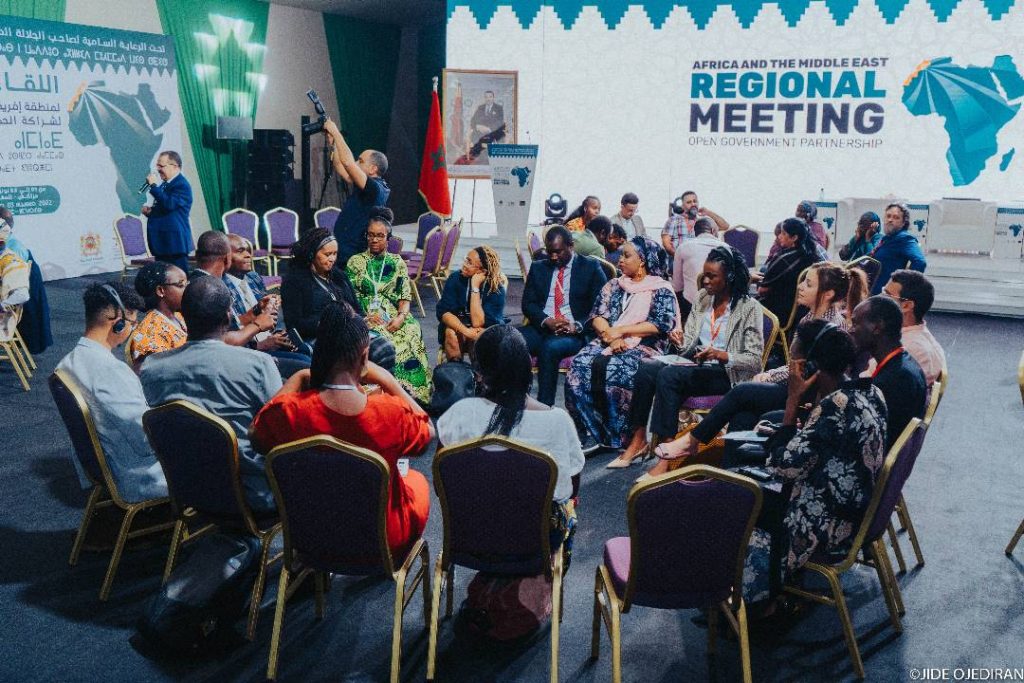As BudgIT continues to revolutionize public finance education in Ghana, we expanded our team in 2022 to increase our capacity to drive citizens’ awareness of public finance, particularly national budgets, and drive support for transparency in the use of public funds. Ghana lives in uncertain times as the economy wobbles due to internal and external factors, further exacerbating the debt sustainability challenges. The COVID-19 pandemic, the Russia-Ukraine crisis, and the inability to recover without the support of oil sales caused the Ghanaian economy to experience its worst economic crisis in decades. The cedi lost about 53.8% of its value in a fiscal year, increasing the debt load by GHS 93 billion ($7 billion), and the inflation rate had accelerated to 50.3% by year’s end, the highest in 21 years.
Gross International Reserve (GIR) declined to US$6,591.8 million, equivalent to 2.9 months of import cover, at the end of September 2022 from a stock position of US$9,695.2 million (equal to 4.3 months of import cover) at the end of December 2021. These shocks resulted in an astronomical increase in all goods and services. Given the preceding, the research team produced reports on Ghana’s Debt Sustainability and the Cedi Depreciation Reports, offering possible solutions to address these issues.
Citizens must ensure that public funds are used efficiently in the face of an unprecedented year by asking questions. As a result, we took a multi-pronged approach that included citizens, the media, the government, and civil society organizations. The BudgIT Ghana team created a citizen-friendly report analyzing the 2022 national budget under the Budget Access program to increase access to knowledge and drive public participation in governance. The report shared top spending priorities and allocations, encouraging individuals and businesses to become more involved in civic responsibilities and demand better government service delivery. We took an aggressively inclusive approach and created infographics to inform citizens about using public resources by engaging approximately 3,000 offline and 50,000 online citizens and gathering the perspectives of students, market women, and petty traders. Commercial and private drivers and everyday consumers shared their views on how the budget affects them and the country’s socio-economic issues.

To raise awareness about the importance of open budgets and government accountability, we organized community engagement events to inform citizens about the national budget’s provisions and increase their understanding of the value of transparent spending plans and an accountable government. Additionally, our Budget Access Town Hall meetings provided a crucial forum for neighbours to interact and voice their concerns. Community members can express their views at these gatherings, ask questions, and learn about current events in their neighbourhood and nation.
Radio was a crucial medium for educating the public about budget access issues and encouraging more openness, responsibility, and involvement in the budgeting process. One of the most significant of them was Starr FM, a well-known radio station in Accra with over 25,000 listeners for their afternoon primetime show on various economic issues, where listeners across the country called in to join the conversation. The team also developed videos to drive awareness and share budgetary information on our social media platforms using interactive data visualization, engaging over 250,000 Ghanaians in online governance discussions.

We collaborated with the Ghana OGP Secretariat on Health Sector Accountability to foster mutual understanding and trust while making critical recommendations for National Action Plans. We worked with the Ministry of Health, Finance, and the Noguchi Memorial Institute for Medical Research (Legon, GIZ, and KOICA). Through the COVID-19 Transparency and Accountability Project (CTAP), the team identified the key challenges confronting Ghana’s health sector that limit its ability to provide quality care to the population and offered critical recommendations to address them. We believe that improving transparency and financial accountability in Ghana’s health sector will necessitate a commitment to better budgeting, stronger financial management systems, and improved reporting and monitoring.
BudgIT Ghana conducted a study titled “Pre and Post-COVID-19 Pandemic Socioeconomic Resilience Strategies: Impact and Lessons from Stakeholders” in collaboration with Oxlade Consulting and with funding from our long-term donor, the Open Society Initiative for West Africa (OSIWA). This study aimed to assess the resilience of local businesses led by women, the disabled, and youth in the Small and Medium Enterprise (SME) category. We held town hall meetings across the country to collect data for the project’s study. The information gathered during these engagements was compiled into a Business Report. We also collaborated with the Center for Employment of Persons Living with Disabilities (CEPD) to create a documentary about the resilience strategies employed by women-owned businesses, students, and people with disabilities. Over 5,000 people also attended our six town hall meetings in Kasoa, Madina, Aflao, Kejetia, Nkawkaw, and Tamale.

What’s next for Ghana? We intend to drive deeper engagements with our stakeholders in 2023, including plans to engage citizens creatively and encourage them to ask questions about the use of public resources. We will engage the media as the public’s watchdog and seek mutually beneficial collaborations with the government to promote transparency and accountability in the country.
Abiola Afolabi is the Head of International Growth, and she writes from Chicago, USA.
